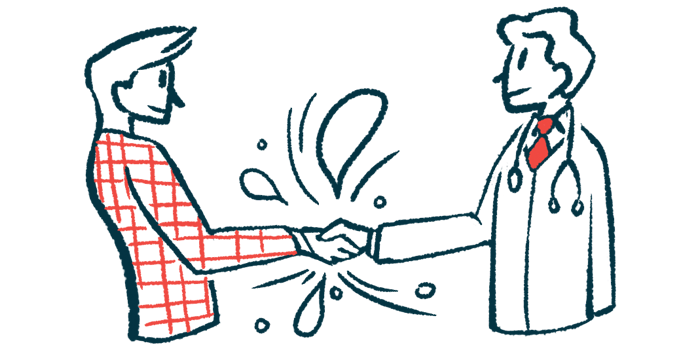Otsuka gets European rights to Ionis’ treatment for HAE in deal
Otsuka to commercialize preventive donidalorsen in Europe, if approved

With Phase 3 clinical trial results on Ionis Pharmaceuticals’ donidalorsen for hereditary angioedema (HAE) due by mid-year, the company has struck a deal with Otsuka Pharmaceutical for the commercialization of the preventive treatment in Europe.
“We are excited to collaborate with Otsuka given their proven results in bringing rare disease medicines to patients in Europe,” Brett P. Monia, PhD, CEO of Ionis, said in a company press release.
“We are encouraged by the strong product profile of donidalorsen to date and look forward to reporting pivotal topline Phase 3 donidalorsen results in HAE in the first half of [2024],” Monia said.
Under the deal, Otsuka — which has previously developed therapies for other rare diseases in Europe — gains the exclusive rights to commercialize donidalorsen in Europe. It also takes on the responsibility for filing applications to European regulatory authorities seeking the approval of the experimental therapy.
Meanwhile, Ionis retains responsibility for the clinical and non-clinical development of donidalorsen for HAE. Ionis also is planning to oversee the therapy’s commercialization in the U.S. if it is approved.
“This agreement is aligned with our strategy to initially focus our commercialization efforts on the U.S. market,” Monia said.
Phase 3 trial tested preventive treatment for HAE in adults with type 1 or 2
HAE is characterized by swelling attacks that are driven by abnormally high levels of a signaling molecule called bradykinin. Donidalorsen is designed to reduce bradykinin levels by interfering with the production of kallikrein, an enzyme that’s involved in the production of this signaling molecule.
The treatment is designed to be administered once monthly via a subcutaneous or under-the-skin injection.
Ionis conducted a Phase 2 trial (NCT04030598) that tested donidalorsen against a placebo in 20 adults with HAE type 1 or 2. The results of that study, completed in 2021, showed the therapy significantly outperformed the placebo at reducing swelling attacks and improving patients’ quality of life.
All patients who completed the Phase 2 study then entered an open-label extension study (NCT04307381) in which all are being treated with donidalorsen. Two-year data, announced late last year, showed the therapy continued to prevent swelling and maintain patients’ improved life quality. No serious side effects related to the treatment have been reported.
Ionis now is conducting a Phase 3 study called OASIS-HAE (NCT05139810) that’s testing donidalorsen against a placebo in 84 people with HAE type 1 or 2, ages 12 and older. The study finished enrollment in mid-2023, and results are expected in the coming months.
“If regulatory approval is received, we look forward to bringing donidalorsen to patients in Europe to address the unmet medical needs of patients with HAE,” said Makoto Inoue, president and representative director of Otsuka.







